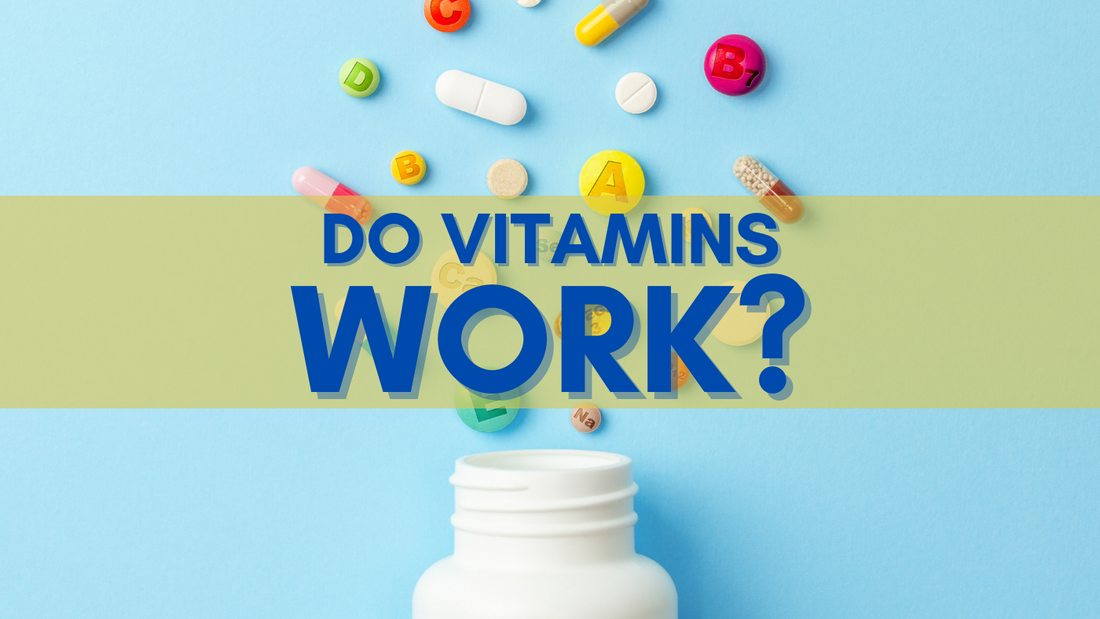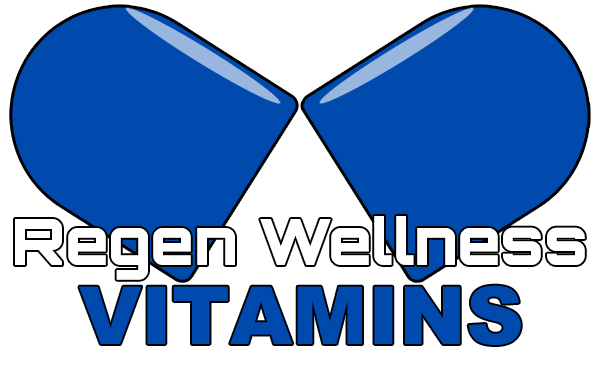
Do Vitamins Work?
Share
Do Vitamins Work
We all know that vitamins are important for our health, but do they actually work? Some people swear by them, while others say they're a waste of money. So what's the truth? Let's take a look at the scientific evidence to see if vitamins actually make a difference.
What are vitamins and why do we need them?
Vitamins are essential micronutrients found in food sources that our bodies use to turn the food we consume into energy. They help us maintain good health, grow, and develop by working with other nutrients necessary for these processes. Do vitamins work? Yes, they do.
Our bodies need an intake of vitamins to sustain regular chemical processes that ensure good health; without them, people can suffer from deficiency diseases like scurvy, rickets, and beriberi. There are 13 essential vitamins recognized by the international nutrition community which are divided into two categories: fat-soluble and water-soluble.
The fat-soluble vitamins include Vitamin A, D, E and K; the water soluble ones are Vitamin C and B complexes like thiamin (B1), riboflavin (B2), niacin (B3), pantothenic acid (B5), pyridoxine (b6), biotin (H or B7) and folic acid or folate (B9). It's important to consume a balanced diet rich in these vitamins for optimal health.
What are Essential Nutrients?
Essential nutrients are vital for allowing us to function properly on a daily basis. These key food components help with bodily functions, such as increased immunity and stronger muscles. The most popular essential nutrients that we all know –and often ask ourselves “Do Vitamins Work”?– are proteins, carbohydrates, minerals, and vitamins.
Proteins provide the body with building blocks to produce muscles and other tissues while carbohydrates provide the energy needed to stay active throughout the day. Simultaneously, minerals support healthy bones and teeth while vitamins assist in regulating hormones and other essential bodily processes. By consuming essential nutrients on a regular basis in combination with plenty of physical activity, one can experience numerous benefits for their overall health.
Ways we get vitamins and nutrients through diet or supplements
Vitamins are essential for the human body in order to provide energy, support growth and development and regulate processes in the body. Vitamins can be obtained through dietary sources or supplements. Many foods such as fruits and vegetables contain vitamins that can be ingested to help maintain health as well as certain meats, dairy and grains. In most cases, it is better to get vitamins from food rather than from vitamin supplements since food also provides other nutrients and minerals that may have beneficial properties.
Taking too many vitamin supplements can lead to an imbalance of nutrients and can even be dangerous. Knowing how much of each type of vitamin you need is important so that you can make sure your diet includes them, or else add a supplement in which case paying attention to labels and recommended doses is essential.
The different types of vitamins and supplements
Vitamins play an essential role in maintaining your health and wellbeing. They are organic compounds that are required for regular functioning, growth, and development. Various types of vitamins are available to meet different needs, including fat-soluble vitamins A, D, E, and K; water-soluble B-complex vitamins—thiamine (B1), riboflavin (B2), niacin (B3), pantothenic acid (B5), pyridoxine (B6), biotin (B7), folic acid/folate (B9) and cobalamin (B12); and vitamin C.
While most people can get all the necessary vitamins through a balanced diet that includes fruits, vegetables, whole grains and animal sources of protein such as beef or poultry, some may need vitamin supplements or fortified foods in order to get enough of these critical nutrients. Taking the time to understand which vitamins your body needs is important for overall health.
What role do vitamins play in our health?
Vitamins play an extremely important role in human health. The most recognizable of the vitamins is the group that includes A, C and D which are essential for healthy immune systems and skin, vision, normal growth and development. Vitamin B complex provides energy by helping to convert carbohydrates into glucose, which provides fuel for cells. Vitamin E boosts immunity and helps to protect against damage caused by free radicals and oxidative stress.
Lastly, vitamin K helps with healing as it assists with the formation of proteins that help blood clots form when necessary. All these vitamins must be consumed through either food or supplements in order to ensure we stay healthy.
The scientific evidence for taking vitamins and supplements
Taking vitamins is often touted for its many health benefits, however scientific evidence is inconclusive about how effective they actually are. While recent studies have shown that multi-vitamins may reduce the risk of cancer, heart attack and stroke in older adults, other studies find little to no effect when it comes to boosting immunity or preventing illnesses like colds and the flu.
More research is needed to determine which vitamins may be beneficial, and what levels may be appropriate for optimal health. One thing that is certain however, taking an excess of vitamins can certainly do more harm than good. Too much of certain vitamins can lead to toxicity, which can cause serious side effects and even long term damage to one's organs. In conclusion, you should consult with a professional doctor before deciding whether or not to take vitamins on a regular basis.
Though vitamins are essential to human health, there is much debate surrounding their efficacy when taken in supplement form. For some vitamins, such as Vitamin C, supplements may be necessary to reach the recommended daily intake. However, for other vitamins like Vitamin D, it is possible to obtain the desired amount through diet and exposure to sunlight alone.
Before starting a vitamin regimen, it is best to speak with a doctor or nutritionist to ensure that you are taking the right type and amount of vitamin for your individual needs. We want to know, have you ever taken a vitamin supplement? Were you happy with the results? Comment below.
3 Tips for staying consistent with your daily vitamin regimen
The most important thing to remember when taking vitamins and their efficacy is being consistent when taking them. When you're inconsistent in your vitamin regimen, your body will not reap the benefits of incorporating a vitamin and supplement routine. Sometimes it can be difficult to remember to take your vitamins. Here are some helpful tips for making sure you're consistent with maintaining your vitamin and supplement regimen:
- Use a vitamin and supplement dispenser. Using a dispenser like the one below is one of our favorite ways to stay on top of our daily vitamin and supplement routine. A dispenser like this not only helps you organize your supplements and ensure you're taking the ones you need to take every day, but it also lets you know if you've missed a day or if you've already taken your supplements each day.
-
Set a timer. Setting a timer or reminder on your smart phone is a great way to help you remember to take your vitamins and supplements each day. Most smart phones have this feature built in. There are also some great apps available to download. This list of vitamin, supplement, and medication reminder apps will help you choose the best one for you.
- Setting up supplement ordering subscriptions. Sometimes we don't take our vitamins or supplements because we've simply run out of our products. That's why ordering vitamins and supplements online and setting them up on a subscription to autoship is the best way to ensure we do not run out of our product. Let's think about it. If you don't order your product until you realize you've run out, then you have to wait for the turnaround time to place the order, factor in shipping and handling process times, as well as any potential backorders and then you can get behind on your supplement by a week or more! Setting up subscriptions is a set and forget it way to help make sure you stay on top of your vitamin and supplement regimen.
Do Vitamins Work - Final Thoughts
As you can see, supplementing daily with vitamins and minerals can have a big impact on your overall health and wellness. A few factors play into the effectiveness of a daily vitamin and supplement regimen such as the quality of your vitamins and supplements, the amount in each dose, as well as your consistency with taking them. To ensure you're getting the quality, efficacy, and dose of vitamins and supplements you need to answer affirmatively the question "do vitamins work", make sure you're getting your vitamins and supplements from Regen Wellness Vitamins, your trusted source for the highest quality, hand-curated selection of vitamins and supplements.








